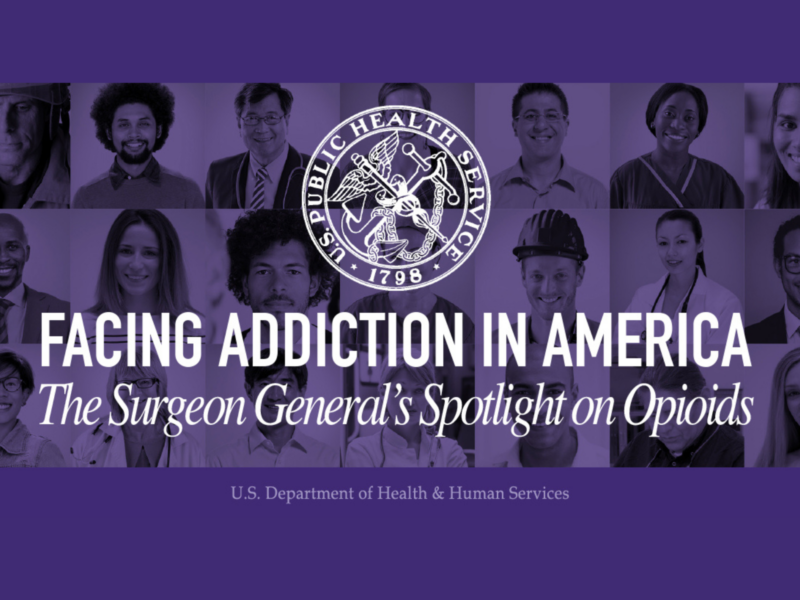Answering the Call: Facing Addiction in America
This article has been cross posted from the University of Pennsylvania Leonard Davis Institute website.

Last week the Surgeon General, Dr. Vivek Murthy, released the groundbreaking, comprehensive report Facing Addiction in America: The Surgeon General’s Report on Alcohol, Drugs, and Health. The report comes at a critical juncture, with more than 27 million Americans misusing illicit and prescription drugs, and more than 66 million misusing alcohol. The Surgeon General details the gravity of the epidemic and provides a sobering view of the health consequences, and the substantial social, economic, and individual implications of substance use disorders (SUDs).
In reviewing the neurobiology of SUDs, evidence-based prevention and treatment, the report tries to dispel the persistent belief that drug and alcohol misuse are “moral failings” or character flaws. Citing the evidence, the report explains the brain circuitry involved in substance use and the transformative effects of SUDs on the brain. In doing so, it frames SUDs as a chronic illness that can be treated and prevented.
The report goes further, calling for treatment that not only addresses substance misuse but also leverages wrap-around services to address social and environmental factors involved in SUDs. In a recent CHERISH/LDI issue brief, we discussed the range of services that could be provided in the primary care setting and how to overcome the fragmented care that SUD patients receive. The report makes the case for integrating the continuum of intervention, treatment, and recovery services into the system deliberately and effectively. Parity laws and initiatives expanding the scope of SUD treatments covered by insurance are key to this end.
Treatment costs and cost-effectiveness will loom large for decision makers when considering integration. The report details the body of evidence around the continuum of SUD treatments and concludes, similar to our findings, that medication-assisted treatment can be cost effective. But other challenges to broad system integration remain, such as insufficient training of health care providers, underdeveloped infrastructure, and ingrained attitudes regarding these patients and treatment options.
The Surgeon General also underscored the need for a holistic approach to prevention, one that addresses the wide-ranging risk factors for SUDs. These risk factors include genetics, environmental factors, mental health disorders, and age of first use. In turn, the report discusses protective factors such as positive family ties, social connections, and overall emotional health. The discussion of the positive effects of laws and regulations limiting access to drugs and alcohol emphasizes the role and potential of public policy in preventing SUDs.
As with other chronic diseases such as diabetes, individuals must make significant changes in their lives in order to overcome SUDs and need significant support. The report describes the positive effect of mutual aid groups and the benefit of including health care professionals in the recovery process. CHERISH researcher and Chief of General Internal Medicine at Boston University, Jeffrey Samet, MD, whose work was cited several times, commented on the report:
“The hopefulness [in the report] comes across loud and clear. That is the right message as many in health care are only exposed to the relapses, those individuals who present to the emergency departments and get hospitalized. Relapse is a part of the disease, but recovery is common and hard work and appreciating this work and the success of recovery is therapeutic and gratifying.”
As researchers, the Surgeon General challenges us to broaden our perspectives and explore models of integrated SUD care, models of ongoing chronic care, and models of coordinated specialty care. Building on recent insights about integrating SUD treatment into primary care, and how to manage complex patients, researchers at LDI and CHERISH are up to the challenge.